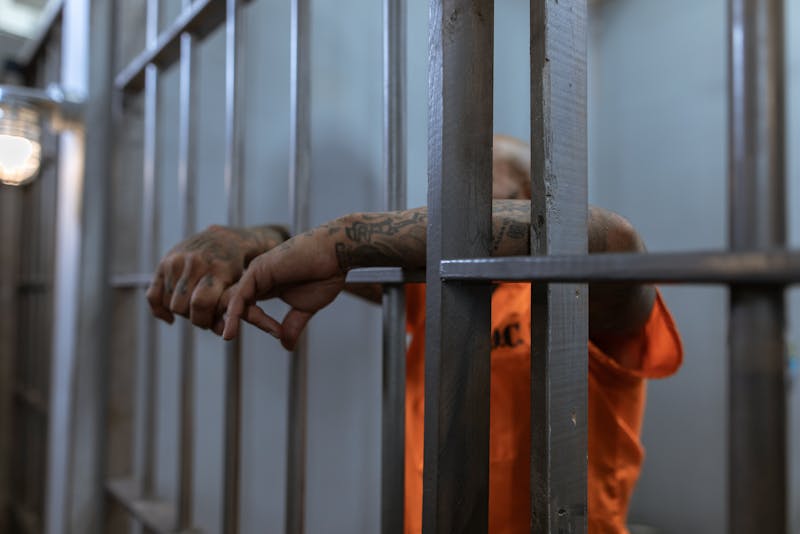I’ve Been Arrested — What Happens Now? Your Guide to Next Steps

Being arrested can be a traumatizing and bewildering experience. Understanding your rights and the Nevada criminal justice process following an arrest empowers you to build the most powerful defense possible.
Here’s a breakdown of what to expect after an arrest in Nevada, with the recommended legal steps to protect your rights.
Arrest and Booking
The arrest process starts with law enforcement detaining you based on probable cause that you committed a crime. Probable cause means police have reasonable grounds to believe you violated the law.
Police will likely handcuff you, search your body and possessions, read you your Miranda rights, transport you to jail, fingerprint you, photograph you, catalog your property, and require you to change into an inmate uniform. This intake procedure is also known as booking.
During booking, deputies will schedule your initial court date to appear before a judge who advises you of the formal charges the district attorney’s office filed against you. This first hearing is called an arraignment.
Bail Hearing
In the interim, between your arrest and arraignment, the court will decide bail terms when applicable. Bail is money defendants pay to the court in exchange for being released from jail pending case conclusion.
Defendants promise to return for future court hearings. However, skipping hearings forfeits the bail money paid.
Detaining arrestees without bail who pose no community dangers is extremely rare. Most defendants undergo booking and holding temporarily, then post bail bond or assets and regain freedom pending trial resolution.
Arraignment
During your first court appearance (arraignment), you’ll stand before a judge who formally states the criminal charges that the District Attorney has filed against you. Arraignment dates typically occur within 72 hours post-arrest.
What happens at an arraignment hearing? First, the judge confirms your identity and ensures you understand your rights. Then, the judge reads the complaint listing pending charges against you.
Pleadings
Next, you’ll enter a plea of guilty, not guilty, or no contest on all charges.
- Pleading not guilty signifies denying allegations, requiring the prosecution to prove guilt beyond a reasonable doubt at trial.
- A guilty plea admits guilt straightaway.
- No contest pleas withhold admissibility of guilt but yield the same ramifications as guilt upon conviction.
You should enter initial pleas carefully and always consult with a skilled Nevada criminal defense lawyer before heading to the arraignment hearing.
Retaining Counsel
If you did not hire criminal defense counsel during arraignment, now is the time to retain your legal representation and advice before moving forward to other pretrial hearings, plea deal negotiations, actual trial, and sentencing if convicted.
If you cannot afford a personal criminal defense lawyer, the courts will assign you a public defender.
Pretrial Proceedings
The pretrial phase follows your arraignment but precedes the ultimate trial when pleading not guilty. This phase involves prosecutors and defense attorneys gathering evidence and strategizing to strengthen their case arguments.
Discovery
Defense investigation and motions might entail interviewing witnesses, reviewing police reports, preparing defenses challenging probable cause, or disputing the prosecution’s evidence admissibility.
Plea Negotiations
Attorneys also negotiate potential plea bargain agreements on your behalf during this phase. Generally, both sides prefer settling rather than facing lengthy trials. Pleading guilty to some charges contributes to significant sentence reductions versus jury trial convictions on all counts. The courts resolve most cases through pleas versus trials.
Preparing Defense Strategy
Consult with your legal counsel during all pretrial developments and decisions imperative to your outcome. Discover all evidence and testimony beneficial toward defeating charges outright or gaining better-bargained outcomes.
Trial
If pleading not guilty and negotiations fail, the case proceeds to a criminal trial deciding innocence or guilt. Defendants have rights to fair, speedy trials, also choosing between bench trials decided by judges or jury trials, leaving determinations to groups of peers.
The trial concludes once both sides complete presenting arguments and evidentiary support for innocence versus alleged guilt. Then comes the final verdict, deciding between conviction or acquittal on all charges.
Sentencing
If convicted by judges or juries, sentencing happens after the courts determine the proper punishments corresponding to the crimes.
Sentencing considerations include the defendant’s criminal history, applicable laws, and discretion based on case specifics.
Typical Nevada penalties for misdemeanor convictions range from community service, fines, or probation to less than a year of county jail time. Felony convictions garner lengthier incarcerations in state prisons, plus heftier fines. Repeat crimes aggravate sentences.
What to Do After You’ve Been Arrested in Nevada
Receiving a favorable outcome after an arrest requires proactivity, taking necessary steps, and exercising rights, beginning from arrest to case closure. Frequently strategize with legal counsel who can tackle the state’s criminal procedure complexities.
Invoke Your Miranda Rights
The landmark Miranda vs Arizona Supreme Court decision established arrest protocols protecting Fifth Amendment rights against compelled self-incrimination.
When detained, Nevada law mandates police advise you of these Constitutional protections including:
- Right to remain silent, avoiding answering questions.
- Statements made are admissible as court evidence.
- Right to attorney consultations beforehand and during police interrogations.
- If indigent, the court appoints public defender representation.
The police usually issue these Miranda warnings verbatim.
Contact Family Members for Bail
After the courts at bail, contact family, friends, or a bondsman to secure your release until case resolution. Bondsmen charge percentage fees but likely arrange jail release before trial dates.
Stay Quiet While in Jail
Do not make self-incriminating statements or discuss case specifics with cellmates that could be used against you in court later. Assume that law enforcement constantly monitors and records you while in custody pretrial.
Also, avoid confrontations or problematic actions in jail that could prompt added charges or delays in releasing you.
Work With Your Criminal Defense Attorney
Once out, immediately hire a Nevada criminal defense attorney to protect rights and craft favorable outcomes while navigating the complex justice system. And closely communicate with your counsel through each phase.
You should diligently follow all court orders and appearances and fully cooperate with court officers, pretrial orders, or probation terms. Noncompliance risks revoking release and harsher sentences if convicted.
The Benjamin Durham Law Firm can advise you on the best path forward after a Nevada arrest. Remember that over 90% of convictions happen through plea deals. And our criminal defense attorneys successfully negotiate favorable plea bargains with prosecutors.
Let our lawyers meticulously prepare the best possible defense for you as your case moves through the criminal justice system.
